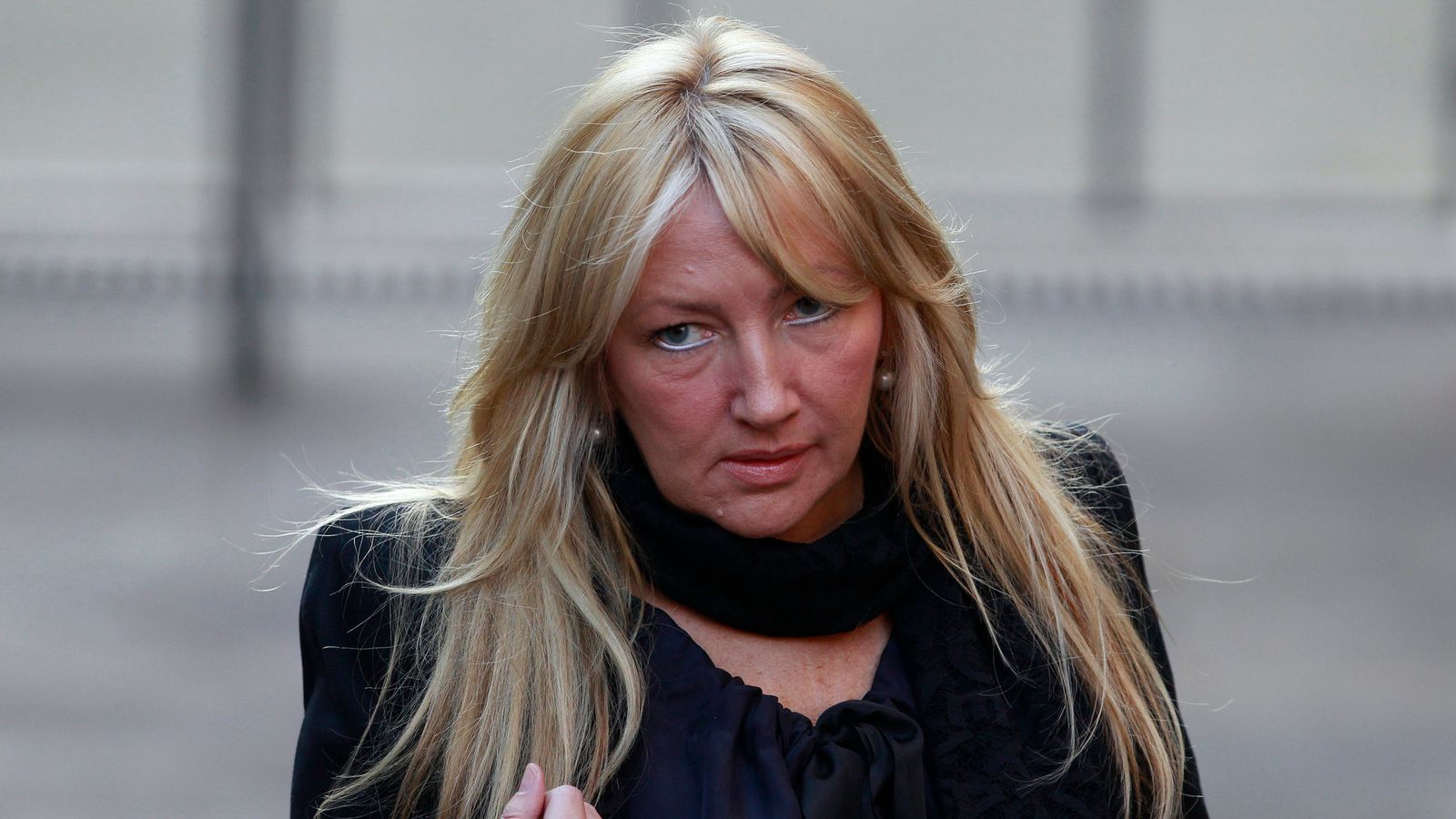The former chief executive of the publisher of the Daily Mirror has said she was unaware of the phone-hacking carried out by reporters she employed, as she gave evidence in a lawsuit brought by Prince Harry against the newspaper group.
Sly Bailey – chief executive between 2003 and 2012 of Trinity Mirror, publisher of the Daily Mirror, Sunday Mirror and Sunday People – told the High Court that allegations of unlawful information-gathering were “a matter of great regret”.
“It is pretty devastating as a chief executive, actually, to be sitting here and listening to this, and I am deeply regretful and I do apologise on behalf of the company,” she said.
“I hope that people will understand that I had no knowledge of these activities.”
Follow up to the minute coverage of the trial on the Sky News Live Blog
The Duke of Sussex and more than 100 others are suing Mirror Group Newspapers (MGN), accusing its titles of phone-hacking and other unlawful behaviour between 1991 and 2011, with the approval of senior executives.
MGN, which is owned by Reach and was known as Trinity Mirror until 2018, strongly denies the allegations.
Prince Harry trial: Former Mirror chair did ‘nothing’ after being warned about phone hacking, court hears
Senior figures authorised private investigator payments ‘in their millions’ at publisher of The Mirror, lawyer claims
Prince Harry hacking trial: Daily Mirror publisher apologises for ordering unlawful gathering of information
Ms Bailey said in her witness statement that “despite our robust governance systems, a number of people on the editorial side of the national titles concealed their unlawful activities from me and from other colleagues”.
Pressed repeatedly by David Sherborne, a barrister representing the claimants, about what she knew of unlawful activity at her papers and what action she had taken to address it, she said she was not specifically aware of allegations while she was chief executive.
Mr Sherborne referred to a 2006 article in which a former MGN reporter was quoted as saying that “many of the Daily Mirror’s stories would come from hacking into a celebrity’s voicemail”.
The barrister said to Ms Bailey that the allegations must have been discussed by Trinity Mirror’s board.
Ms Bailey said that she could not remember that they were, and in response to questions about why executives had not investigated further after three reporters were questioned but not charged, she replied: “I’m not a policeman.”
She and her and former board members had been subjected to “terrible smears”, she added.
Mr Sherborne also pushed Ms Bailey on Sunday Mirror articles about footballer Rio Ferdinand that were obtained through phone hacking.
Mr Sherborne said it would have been “clear from the content of the article that the newspaper had got access to Rio Ferdinand’s phone records”.
MGN previously admitted three articles about the ex-England defender and his relationship with flight attendant Lauren Alcorn were the product of phone hacking.
The article “Rio playing away”, published in January 2003, had revealed their relationship.
Ms Bailey had said in her Leveson Inquiry evidence that in terms of specific content or exclusives, she would “rarely know of this pre-publication” as this was a matter for the editor.
Read more:
Former Mirror chair did ‘nothing’ after being warned about phone hacking
Royal biographer denies having ‘vested interest’ in helping Duke
Everything you need to know about the case
Mirror Group apologises to Prince Harry
However, she said the exception was the Sunday Mirror and the Sunday People as she would discuss the leading exclusive each week with each editor.
Mr Sherborne said the Ferdinand stories would have been lead exclusives, and asked whether she would have discussed this with then Sunday Mirror editor Tina Weaver.
Ms Bailey said she would only discuss the stories to ensure the newspapers – which were competing against each other – would not run with the same front-page story.
Please use Chrome browser for a more accessible video player
It was important to differentiate to “maximise sales”, she said, so the editors would “probably text me to tell me what the essence of the story was in summary terms”.
The trial, due to last around seven weeks, is initially focusing on generic allegations against MGN before turning to the specific claims of Prince Harry and three other test cases.
The duke is due to give evidence himself in person in early June, the first British royal to do so since the 19th century.






















